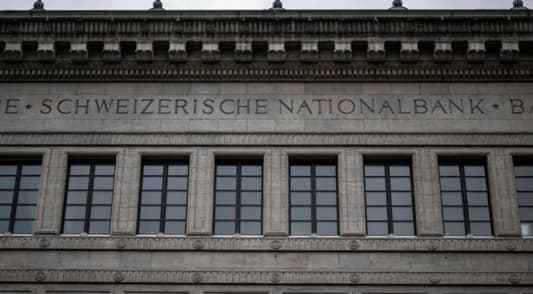Switzerland and Norway hiked interest rates Thursday to tackle inflation despite banking-sector turmoil, with the Bank of England next in line after the US Federal Reserve also lifted borrowing costs.
The Swiss National Bank, which helped oversee the UBS buyout of troubled Credit Suisse last weekend, lifted its key rate as expected by a hefty 50 basis points to 1.5 percent as it declared that authorities had brought the crisis under control.
Norway's central bank followed suit, hiking its rate by a more modest 25 basis points to 3.0 percent.
Central banks remain in inflation-fighting mode with the Fed pushing up interest rates by 25 basis points on Wednesday, one week after the European Central Bank (ECB) unveiled a large 50 basis-point increase in eurozone borrowing costs.
The Bank of England (BoE) is forecast at 1200 GMT to join them in hiking, one day after data showed a shock upsurge in UK inflation.
- Need to 'curb inflation' -
Following their latest monetary policy gatherings, the SNB said it was "countering the renewed increase in inflationary pressure", while Norges Bank added higher rates were "needed to curb inflation".
While the Fed hiked its rate, analysts said its accompanying statement signalled it may soon pause its monetary tightening.
The Fed statement replaced a previous warning that "ongoing increases... will be appropriate" to tame inflation with a conditional one saying "some additional policy firming may be appropriate".
Recent banking sector developments "are likely to result in tighter credit conditions for households and businesses and to weigh on economic activity, hiring and inflation," the Fed added.
The Swiss rate call, which matched its last increase in December, comes just a few days after the SNB joined other major central banks in boosting liquidity in the wake of the latest banking crisis.
Switzerland at the weekend brokered the takeover of crisis-hit Credit Suisse by its Swiss rival UBS.
- 'Halt to crisis' -
The SNB said Swiss authorities had "put a halt to the crisis" at Credit Suisse, declaring that their actions preserved financial stability.
A failure to resolve the Credit Suisse crisis "would have triggered a bigger financial crisis, not only in Switzerland, but most likely, globally", Swiss National Bank chairman Thomas Jordan told a press conference in Zurich.
"The focus has to be ensuring that we can maintain financial stability under all circumstances."
The deal followed the collapse this month of Silicon Valley Bank and Signature Bank in the United States, which sent shockwaves across global markets.
Yet a catalyst for SVB's demise was the Fed's policy shift from near-zero interest rates to an aggressive rate-hiking campaign.
This is the reason economists have in recent days spoken about the possibility of central banks pressing the pause button on rate rises
However, hot inflation remains a major problem and is widely seen as threatening a global recession this year.
At the start of the week, there was much talk about how the BoE could decide against lifting its key rate from 4.0 percent.
However, official data Wednesday showing a surprise acceleration in annual UK inflation to 10.4 percent quickly changed that conversation.
"The Bank of England, similarly hamstrung by a combination of persistent inflation and the banking sector chaos, is expected to follow the recent lead set by both the ECB and the Fed, raising rates by 0.25 percent to 4.25 percent," said Interactive Investor analyst Richard Hunter.
A rate increase would be the UK central bank's eleventh in a row since the end of 2021 when its rate had stood at a record-low 0.1 percent.










TWEET YOUR COMMENT